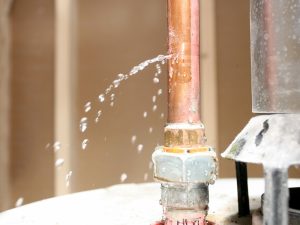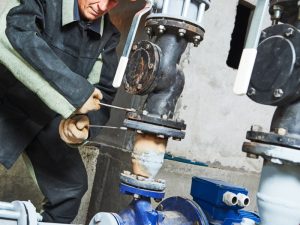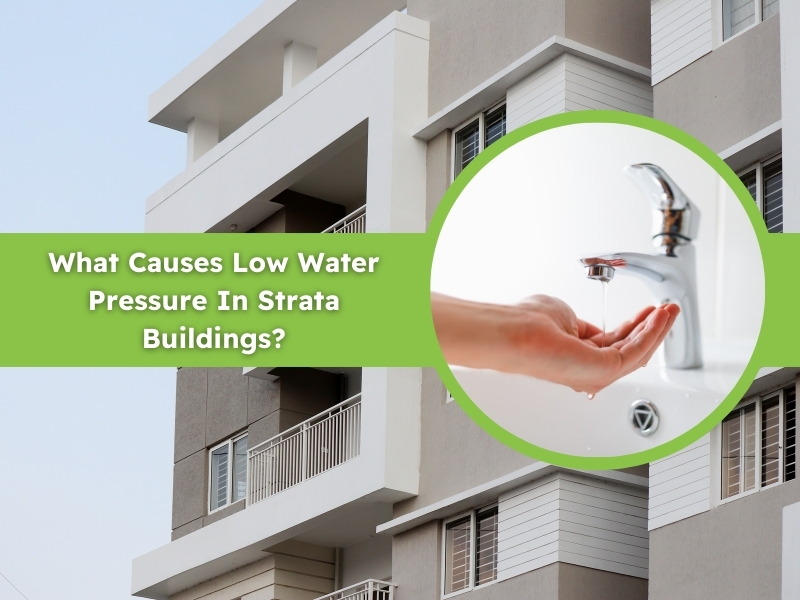Low water pressure in strata buildings can be a frustrating issue for residents and property managers. It can lead to poor water flow in taps, showers, and appliances, affecting daily living and comfort. Understanding the underlying causes of pressure problems is crucial for finding effective solutions. This article will explore the common reasons for reduced water pressure in strata buildings, including how pipe damage, leaks, water-saving fixtures, and shared water supplies contribute to the issue.
What are the common causes of low water pressure in strata buildings?
There are several potential causes of reduced flow in strata buildings.
- Age of the plumbing system: Older buildings tend to have ageing plumbing systems that can result in reduced flow. Over time, pipes can become corroded, leading to blockages and restricted water movement.
- Water demand fluctuations: In a strata building, water demand may vary depending on the time of day, leading to pressure changes. During peak times, such as mornings or evenings, multiple units may be using water simultaneously, causing a temporary drop in pressure.
- Pipe diameter: The size of the pipes in the building affects water flow. Reduced pipe diameters can impede flow, particularly in multi-residential complexes with high simultaneous water usage.
- Faulty pressure-regulating valves: A malfunctioning pressure-regulating valve can cause fluctuations or a significant drop in pressure, affecting the entire building.
- Municipal water supply issues: Sometimes, reduced flow in strata buildings can be traced back to problems with the municipal water supply, such as maintenance or repairs being carried out by local authorities.
How does pipe damage affect water flow in strata properties?
Pipe damage can significantly impact water flow and cause low water pressure. Here’s how it works:
- Corrosion: Over time, pipes, especially metal ones, corrode, narrowing the pipe’s interior and restricting water flow.
- Cracks and leaks: Small cracks or leaks in pipes allow water to escape, leading to a significant loss of pressure.
- Blockages: Dirt, rust, and mineral buildup can accumulate inside pipes, blocking flow and reducing pressure.
- Collapsed pipes: Poor installation, ground movement, or age can cause pipes to collapse, completely obstructing water flow and causing reduced pressure in affected areas.
Can water leaks contribute to pressure issues in strata buildings?
Yes, water leaks are a significant cause of reduced water pressure in strata buildings. Understanding the common causes of pipe leaks can help prevent costly damage in your strata building. Here’s how:

- Leaks in shared plumbing: A leak in a shared pipe can reduce flow for multiple residents as water is diverted from its intended path.
- Silent leaks: Small, hidden leaks within walls or underground can go unnoticed, gradually affecting the building’s flow.
- Impact on water supply: Even minor leaks can reduce the water supply reaching taps and appliances, causing a noticeable drop in pressure.
- Increased water bills: Leaks not only reduce pressure but can also lead to higher water consumption, raising utility costs for residents and property managers.
How do water-saving fixtures influence water pressure in strata buildings?
While water-saving fixtures, such as low-flow showerheads and faucets, can reduce water consumption, they can sometimes impact flow rates. Here’s how:
- Design of water-saving fixtures: These fixtures restrict flow to conserve water. However, if water pressure is already low, they may worsen the issue by further reducing water flow.
- Pressure compensation features: Some fixtures have built-in features to maintain a consistent flow. However, older or poorly installed models may not perform well in low-pressure conditions.
- Impact on shared plumbing: Water-saving fixtures in multiple units can reduce overall water flow in strata buildings. This is more likely to occur if the plumbing system is not designed for lower water demand.
- Balancing water conservation and pressure: Strata buildings must balance conservation with adequate pressure. A professional plumber can help install fixtures that optimise both.
What role does the water supply from the main line play in low pressure?
The main water supply from the local water utility plays a significant role in the flow experienced in strata buildings. Here’s how it affects pressure:
- Supply issues from the main line: Problems like maintenance or infrastructure failure at the utility’s end can lead to low pressure for the whole building.
- Fluctuating supply pressure: The pressure from the main line can vary, especially during peak demand times, affecting strata buildings more due to shared supply.
- External factors: Weather, nearby construction, and time of day can influence pressure in the main supply line, impacting buildings at the end of the pipeline. Additionally, the drought and water availability in Australia can also influence water pressure in strata buildings, especially in areas affected by water shortages.
- Backflow prevention: Strata buildings require proper backflow devices to prevent contamination and avoid pressure drops from issues in the main supply.
Can a professional plumber help diagnose and fix pressure-related problems?
Absolutely! A professional strata plumbing expert can quickly diagnose and resolve pressure-related issues in your building. Here’s how:

- Comprehensive diagnostics: A qualified plumber will inspect the building’s plumbing system. They will identify the root causes of low water pressure.
- Leak detection: They can locate and repair leaks, whether visible or hidden, to restore proper water pressure.
- Pipe repairs and replacements: If the issue is due to damaged or corroded pipes, a plumber can repair or replace the affected sections to improve water flow.
- Pressure regulation installation: A plumber can install or adjust pressure-regulating valves to maintain a consistent flow of water throughout the building.
- Water-saving fixture upgrades: They can help optimise water-saving fixtures, ensuring they conserve water without compromising flow efficiency.
Need help with strata plumbing?
If you’re experiencing reduced flow in your strata building, Eco Plumbers 24/7 is here to help. Our team of expert plumbers is experienced in diagnosing and resolving water pressure issues in multi-unit properties across Sydney. Whether fixing leaks, repairing pipes, or optimising your plumbing system, we provide reliable, eco-conscious solutions to keep your water flowing smoothly. Schedule strata plumbing service with Eco Plumbers 24/7 today!

